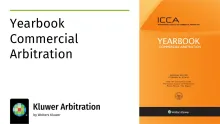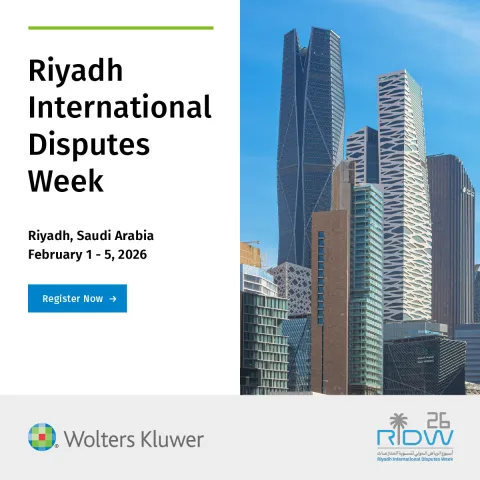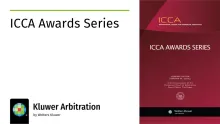Hardly Shocking: Australian Court Dismisses Challenge to Power Station Award (with Indemnity Costs)
August 26, 2025
On 31 March 2025, the Supreme Court of Queensland (the “Court”) in Clarke Energy (Australia) Pty Ltd v Power Generation Corporation (Trading as Territory Generation) [2025] QSC 64 (the “Primary Proceeding”) refused to set aside an arbitral award on the grounds that it was contrary to the public policy of the state of Queensland, Australia. On 20 May 2025, on the basis that it "should have been readily apparent" that the attempt to set aside the award was clearly hopeless, the Court exercised its discretion and ordered that the Applicant (“Clarke”) pay the First Respondent's (“TG”) costs on the higher (i.e., indemnity) basis: Clarke Energy (Australia) Pty Ltd v Power Generation Corporation (Trading as Territory Generation) [No 2] [2025] QSC 111 (the “Costs Proceeding”).
Whilst challenges to arbitral awards are relatively rare in Australia, the Costs Proceeding serves as a helpful reminder for arbitration practitioners that any application to set aside, or to challenge the recognition and enforcement of, an arbitral award on the grounds of a denial of natural justice must satisfy a high threshold. Where the prospects are low, such an application risks indemnity costs.
The Court's Findings
The arbitral award which gave rise to the Primary Proceeding concerned two similar contracts between TG (as the owner) and Clarke (as the contractor) regarding: (i) the installation of a gas fired power station and (ii) the upgrade and replacement of a diesel generation power plant.
Disputes arose under both contracts in relation to extensions of time (“EOT”) and variations. In July 2019, Clarke initiated two separate arbitrations under the respective arbitration clauses in each contract, both of which provided for arbitration under the ACICA Arbitration Rules. The same sole arbitrator was appointed in both arbitrations and subsequently directed that the two arbitrations be managed and heard concurrently.
The sole arbitrator rendered a single partial award in July 2023 addressing both arbitrations in which all of Clarke’s EOT claims were dismissed, with only two variation claims being granted (amounting to AUD 13,317.50). TG was awarded approximately AUD 9.7 million for its counterclaims.
In October 2023, Clarke commenced a proceeding in the Court to set aside the partial award on public policy grounds pursuant to s 34(2)(b)(ii) of the Commercial Arbitration Act 2013 (Qld), which adapts the UNCITRAL Model Law to a domestic context.
Clarke alleged that it was denied natural justice in the hearing because the arbitrator had failed to consider or address an issue which Clarke considered to be "important," "central," and "crucial." The issue was whether TG was obliged to act fairly and reasonably, and thus grant the EOT, even if Clarke’s EOT claim did not meet contractual notice requirements. However, that issue was first raised in Clarke's written closing reply submissions. The Court rejected Clarke's assertion that it had raised the relevant issue from the outset of the arbitration. The Court also held that the relevant issue raised by Clarke in the notice of arbitration was not subsequently pleaded in its Statement of Claim (Primary Proceeding, at [68], [103], and [139]) and that no application was made by Clarke to amend its pleading to include the issue, which Clarke should have done had it wished to have the issue determined. Raising the issue in its closing reply submissions was far too late.
In summary, the Court held that Clarke was not denied procedural fairness in circumstances where:
- the issue raised by Clarke was only pleaded in Clarke's closing reply submissions (Primary Proceeding, at [133]-[134]);
- the raising of the issue only in closing reply submissions involved reference to a case authority in a "haphazard and belated way" and that the arbitrator should be afforded "fair latitude" when the Court examined the arbitrator's identification and determination of the issue (Primary Proceeding, at [134]);
- the arbitration had been conducted on the basis that the relevant issues were brought within the arbitrator's jurisdiction by way of pleadings. Since Clarke had not pleaded the issue, it was not within the arbitrator's jurisdiction (Primary Proceeding, at [64], [103], [137], and [139]);
- the arbitrator had decided a sub-issue in favour of TG, namely, that as a threshold question of law, TG was not contractually obliged to act fairly and reasonably when determining an EOT claim that did not meet contractual preconditions. Consequently, the second sub-issue—being whether or not TG was required to grant the EOT in accordance with an obligation to act fairly and reasonably—no longer arose for determination. The Court held that the arbitrator's "approach was an eminently sensible approach" and the arbitrator was under no obligation to consider "arguments that have been rendered academic by other reasoning in the award" (i.e., as there was no contractual entitlement, there was no justification to consider the second sub-issue as it was contingent on a contractual right) (Primary Proceeding, at [133]-[134], [140], and [141]); and
- even though the issue of "unfairness and practical injustice" did not arise due to the Court's earlier conclusions, as Clarke had failed to prove delay had arisen, there was no basis on which to find that Clarke had suffered any practical injustice warranting the award being set aside (Primary Proceeding, at [145]).
A Narrow View of Public Policy Grounds
Challenges to arbitral awards on the grounds that the findings in the award conflict with the public policy of the State are rarely successful and narrowly construed (as noted in Guide to the 1958 New York Convention, 'Article V(2)(b)' at [31]) (the “Guide”). This situation is no different in Australia where the courts have, in cases such as Traxys Europe S.A v Balaji Coke Industry Pvt Ltd (No 2) [2012] FCA 276 at [105], referred to public policy as a central legal value critical to "the fundamental, core questions of morality and justice in that jurisdiction."
The public policy ground was described by the drafters of the New York Convention as a safety valve to be used in exceptional circumstances where it would be impossible for a legal system to recognise and enforce the award without abandoning the very fundamental principles that it is based on (see the Guide, 'Article V(2)(b)' at [4]). A recent (and relatively rare) example of where an award conflicted with public policy arose in the English decision of The Federal Republic of Nigeria v Process & Industrial Developments Ltd [2023] EWHC 2638 where a party was held to have procured awards through fraud and other abuses of the arbitral process, such as improperly obtaining privileged and confidential legal documents ([210], [316], and [515]) and bribing a witness throughout the arbitration to "buy her silence," whom it had also bribed when the underlying impugned contract was made ([404]). While rarely considered in Australia, the Victorian Supreme Court has held that "fraud or corruption . . .would render enforcement contrary to public policy" (see Indian Farmers Fertiliser Cooperative Ltd v Gutnick (2015) 304 FLR 199 at [107], which was upheld on appeal in Gutnick v Indian Farmers Fertiliser Cooperative Ltd (2016) 306 FLR 386).
Whilst fraud and corruption are not the only situations where the public policy ground can be made out, and indeed were not advanced in the Primary Proceeding, they nonetheless demonstrate the high threshold needed to establish that ground. Such challenges remain the domain of "exceptional circumstances." As highlighted in the Primary Proceeding at [14], mere procedural irregularities are generally insufficient to satisfy the public policy grounds.
Instead, a real unfairness or practical injustice in how the arbitration was conducted or resolved by reference to established principles of natural justice or procedural fairness is required (see TCL Air Conditioner (Zhongshan) Co Ltd v Castel Electronics Pty Ltd (2014) 232 FCR 361 at [55] and [111]). This approach appropriately balances the policy of minimal curial intervention against the fundamental right to the parties under Article 18 of the UNCITRAL Model Law to be treated equally and given a full opportunity to present their case (see TCL Air Conditioner (Zhongshan) Co Ltd v Castel Electronics Pty Ltd (2014) 232 FCR 361 at [110] and [146]).
Costs Consequence of a Hopeless Set-Aside Application
In the Costs Proceeding, upon TG’s request, the Court held that special circumstances existed to warrant an order that Clarke pay TG's costs on an indemnity basis. The Court scathingly commented (at [13] of the Costs Proceeding) that "it should have been readily apparent to Clarke, properly advised on the basis of the written record of the arbitration, that there was no true substance in the issues and arguments it raised in this proceeding."
The ordering of indemnity costs to disincentivise frivolous and unmeritorious applications to set aside awards was recently considered by the Singapore Ministry of Law (“Ministry”) in its Public Consultation on the International Arbitration Act 1994 of Singapore held from 21 March to 2 May 2025.
The consultation noted that the Singapore courts have not imposed indemnity costs in unsuccessful set-aside applications to date (a topic previously explored in this Blog), but that the feedback received by the Ministry suggests that the current cost principles "may not be sufficient to deter applicants from pursuing frivolous or unmeritorious applications, to delay proceedings and hinder a successful counterparty's attempts to enforce its rights under the arbitral award." The consultation noted that Hong Kong courts "grant indemnity costs as a default when an arbitral award is unsuccessfully challenged, unless special circumstances can be shown" and that, in A v R [2010] 3 HKC 67, at [71], it was held that awarding costs on a standard basis would "only encourage the bringing of unmeritorious challenges to an award. It would turn what should be an exceptional and high-risk strategy into something which was potentially 'worth a go.'"
The Court’s judgment against Clarke in the Costs Proceeding does not indicate that Australian courts will follow Hong Kong by awarding indemnity costs by default. However, the decision highlights that Australian courts have discretion to grant costs on the higher basis, which prospective set-aside applicants should consider before making any application.
Whilst each case is fact-sensitive, the recent decisions in Clarke serve as a reminder that Australian courts do not take well to apparent uses of challenges to awards as a dilatory tactic where it is clear that the challenge is frivolous or hopeless. In essence, don't be shocked if you are forced to wear costs on an indemnity basis for launching a challenge which is doomed to fail.
You may also like










